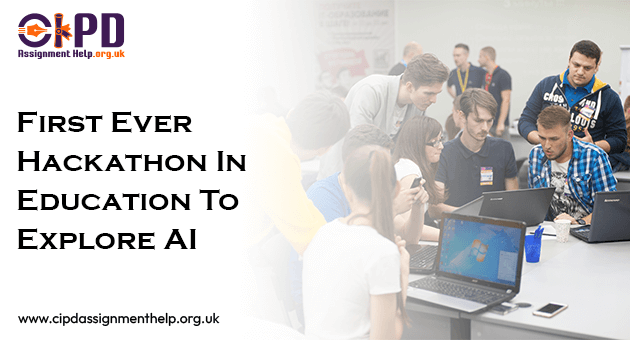Introduction:
The first-ever AI in Education Hackathon took place in October 2023. Educators, school leaders, government officials, and data scientists from all over the country participated in this hackathon. It was 2 days long. At the conference the topics of the discussion were AI and how it can bring a transformation to the process of teaching and learning within the education sector.
As AI keeps on revolutionizing the way businesses are run across different sectors, from finance to health, similarly it is also reshaping the education sector. Some examples of this revolution include online classes, the use of virtual reality and augmented reality and there is much more to come.
This post shares the insights from this very first hackathon discussing the experiments conducted, the benefits identified, and the ethical issues raised.
Part 1: Experimenting With AI in Education:
During the hackathon the participants were made to experiment with the AI, to understand its capabilities and possible implementations in the domain of education. One of the major things under exploration was marking and assessment, where the group tried the capability of AI to write a lesson plan and grade an examination paper.
The AI did well in some tasks, such as finding mistakes in grammar and making comments, but not so well in grading essays and maintaining consistency. But even after these limitations, the participants were optimistic that only with a little more development in tools like ‘Teaching Assistant’s Assistant’ (TAA), AI will be successfully able to assess the teachers.
Part 2: Enhancing Teaching & Learning:
The participants also pointed out how AI could make classroom teaching and learning better. Educators reported that AI could summarize information, generate questions, and provide tailor-made resources for individual students. In this way, AI is seen to improve engagement and outcomes for students.
The infusion of AI education in the curriculum will help prepare students for their future careers. But for this, the schools will be required to equip the students with the skills and knowledge to use AI effectively, safely and ethically.
Part 3: Streamlining Administrative Tasks:
In the experimentation, it was also found that AI can do much more than support the process of teaching and learning. For instance, it can contribute to streamlining the education tasks like those requiring HR Assignment Help UK support. The participants were also found discussing the effective use of AI in the areas like recruitment, authoring policies, and professional development.
They highlight that AI can be applied to automate activities that range from how to assess the quality of a job advert to the generation of scenarios for staff training. By reducing the time and money used on such functions, AI provides support staff and senior leaders with enough time and resources needed to focus on more strategic activities, thus enhancing overall efficiency and effectiveness in the educational setting.
Part 4: Considerations & Ethical Concerns:
There is no doubt that AI brings in a great number of advantages in the field of education. But still, there are also some ethical considerations and drawbacks to consider while implementing these technologies into our education system.
The participants emphasize that AI should be used with the appropriate level of human control. As this will ensure that it is being used responsibly and in an ethical manner. The queries were also raised on data privacy, how can data be kept safe, and the issue of bias in the AI systems.
Educators emphasized transparency, accountability, and dialogue. They also highlight the need for constant discussion regarding the ethical aspects of the use and integration of AI in education.
Part 5: Impact on the Curriculum:
The changes to be brought in the development and delivery of the curriculum were also discussed in the hackathon. As the importance and use of AI have increased educators highlighted the need to educate the students on it. They especially focused on including a course on AI in the curriculum.
In this way, they will be able to educate the upcoming generation on the latest developments in the field of AI and how they can make the ethical, safe and effective use of this technology.
They also discussed how including this course on AI will help them prepare the students for an AI-driven future. Also, schools will be able to arm their students with the knowledge and skills to be successful in a technological landscape that is always changing.
Part 6: Future Directions & Reflections:
As we talk about the future, the design is given in the hands of the government. Now. The government will review the results of the hackathon to provide the best AI tools for schools to test and use across the nation. This educator community stays optimistic about the possibilities AI can bring to the education sector.
They are looking forward to the implementation of AI hackathon in the education system, ensuring the safe and ethical use of AI hackathon. With the fast evolution of AI in new teaching practices, exploration and dialogue will be continuous to exploit its full potential for positive outcomes for both students and educators.
Conclusion:
Therefore, this first AI hackathon education hackathon has provided valuable insights into the potential applications of AI in the transformation of teaching and learning practices. These potentials are bound to be made a reality: from enhancing assessment and marking to streamlining administrative demands and offering a personalized learning experience.
These will be possible only if the use of AI in education is well-considered to ensure safety, ethics, and equity in the use of AI. It is only through constant dialogue and collaboration that we shall be able to harness the power of transformation in AI toward an all-inclusive, innovative, and equitable education system for all.

